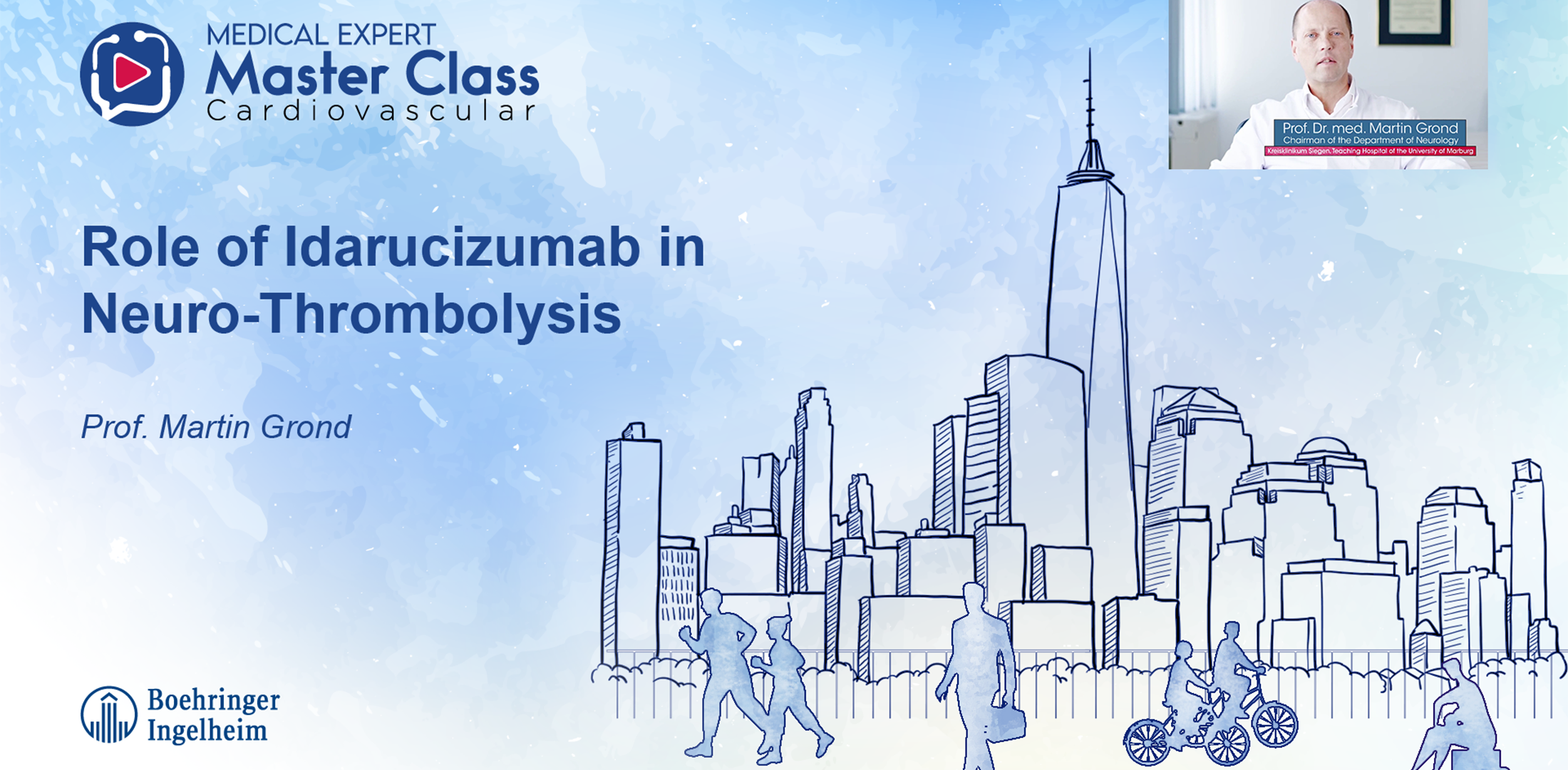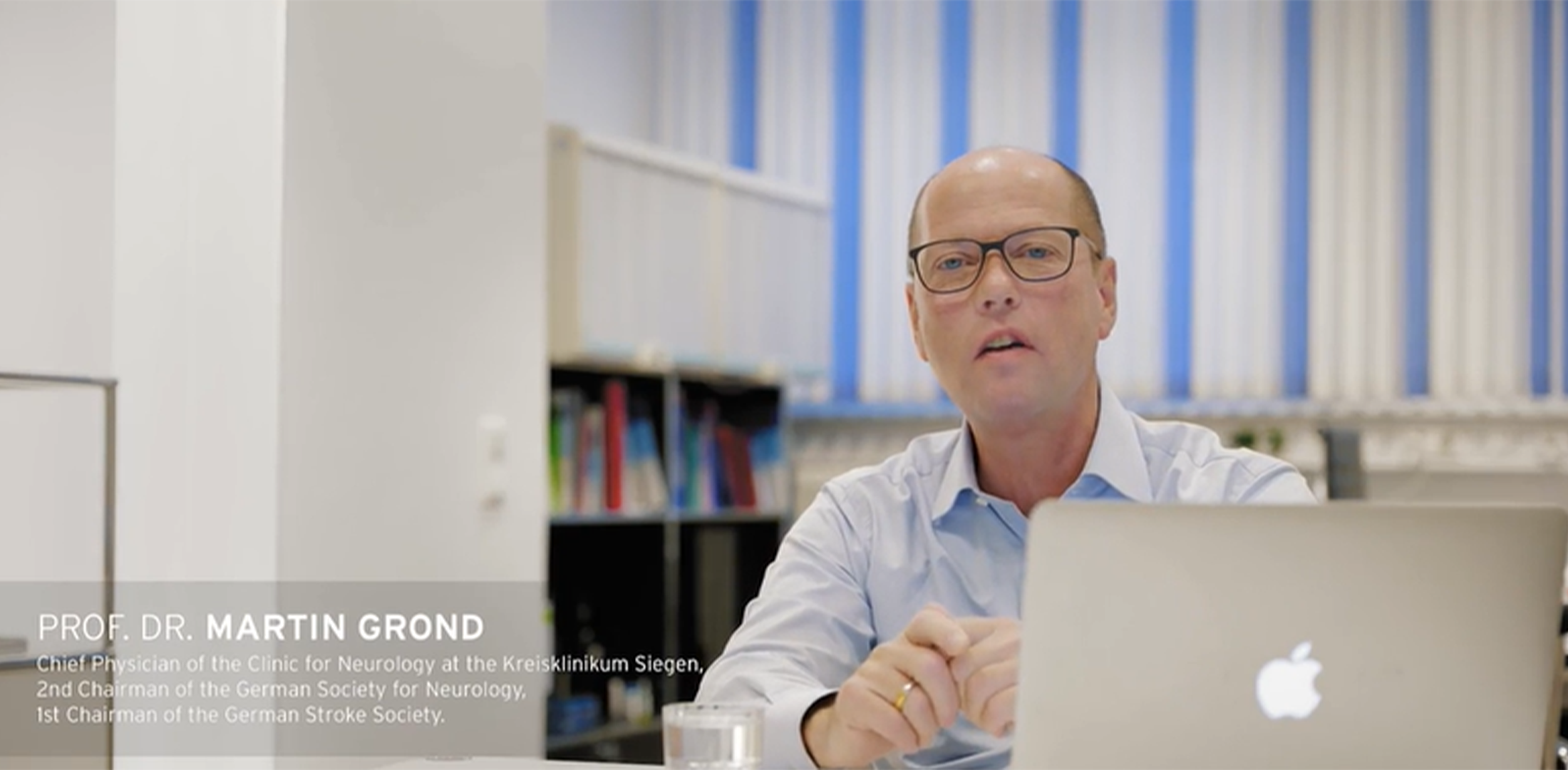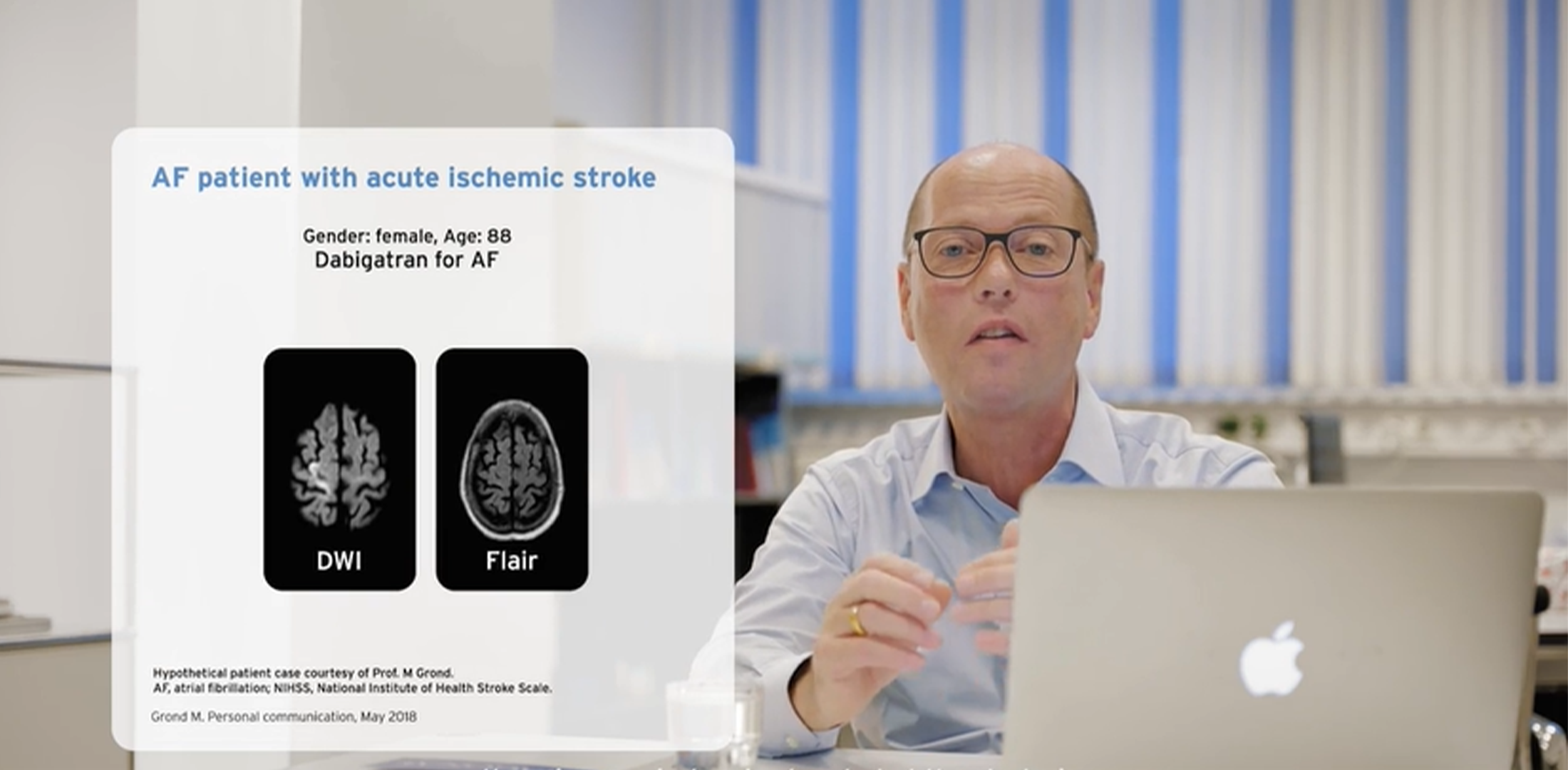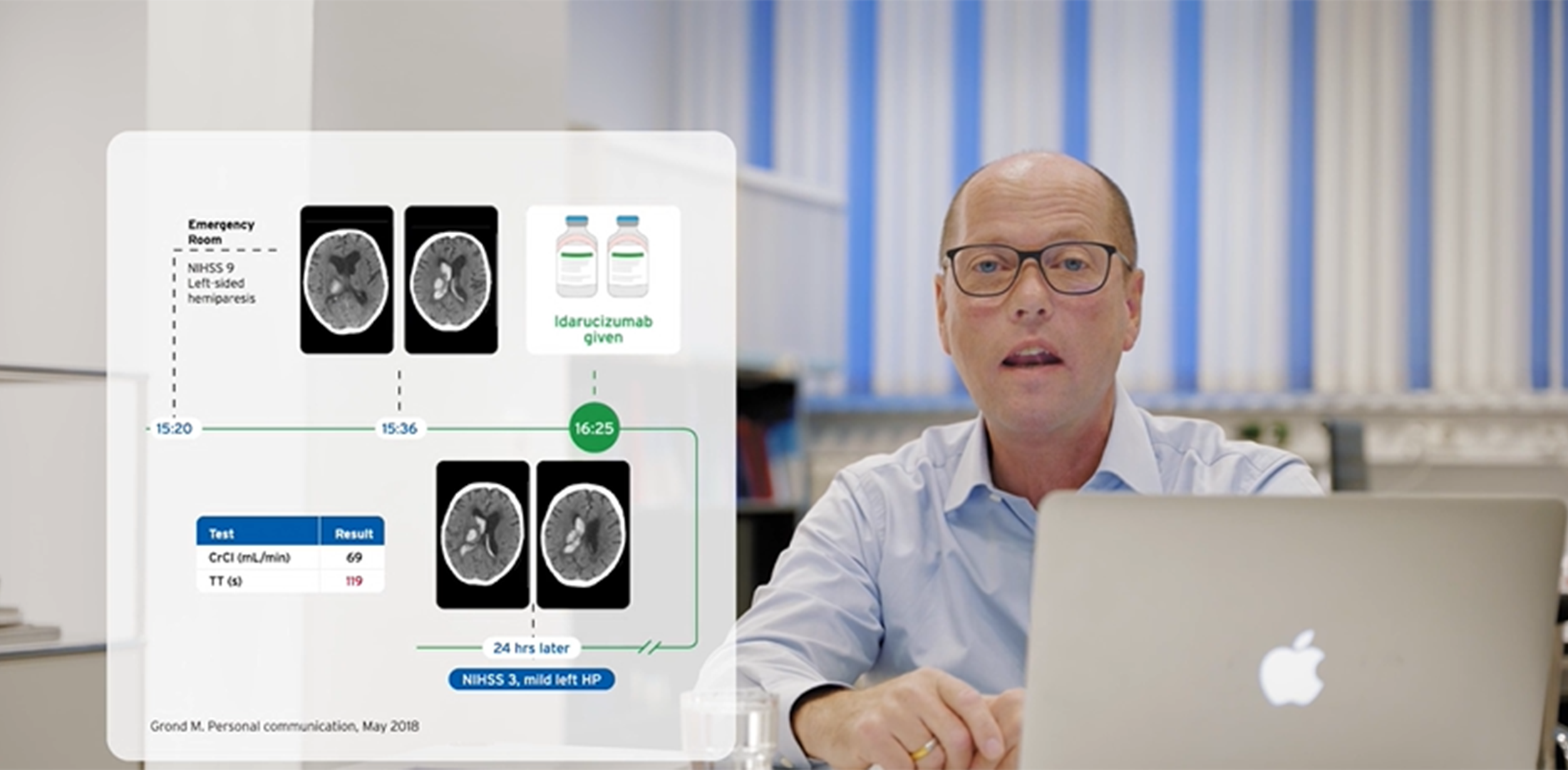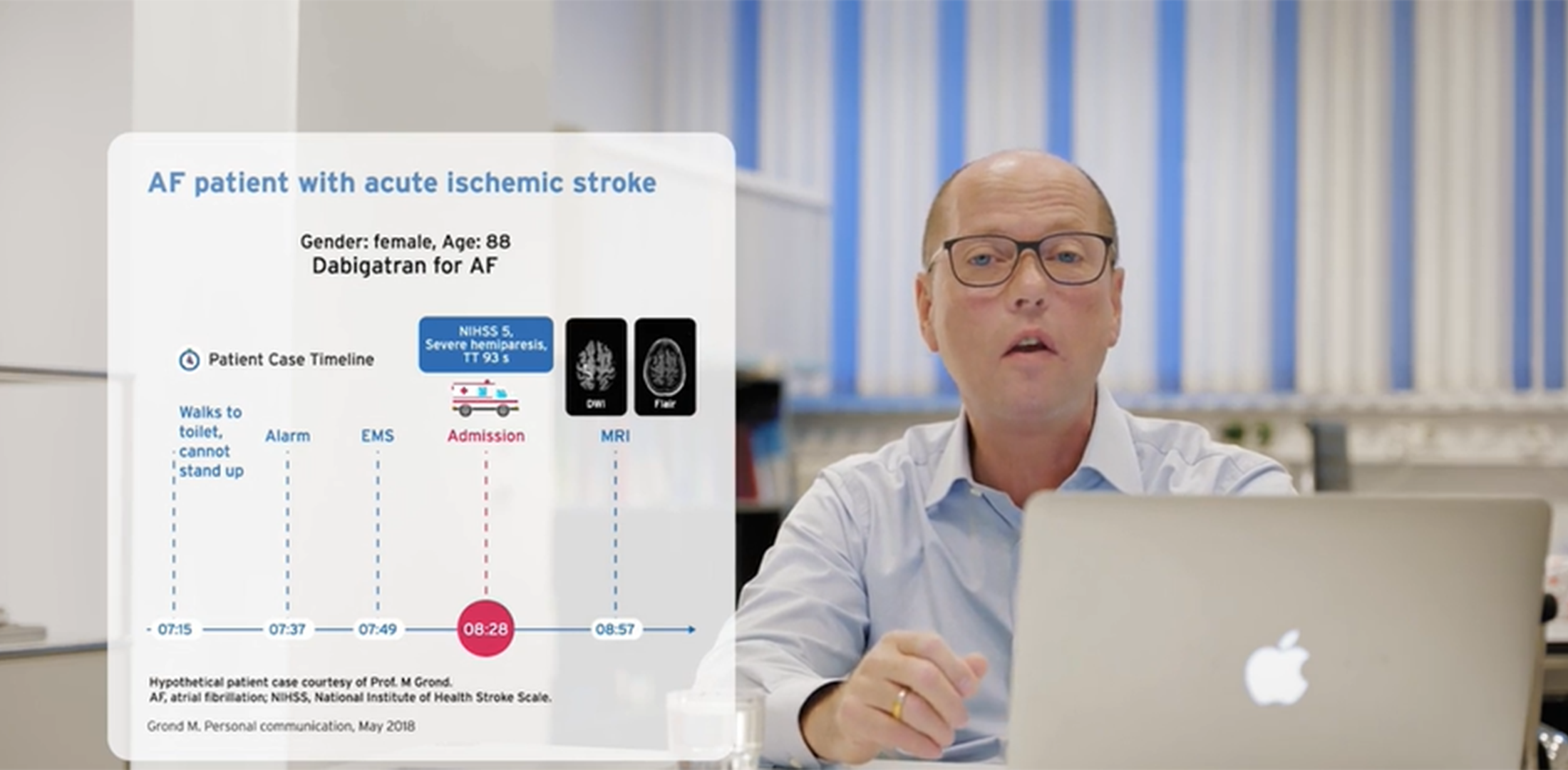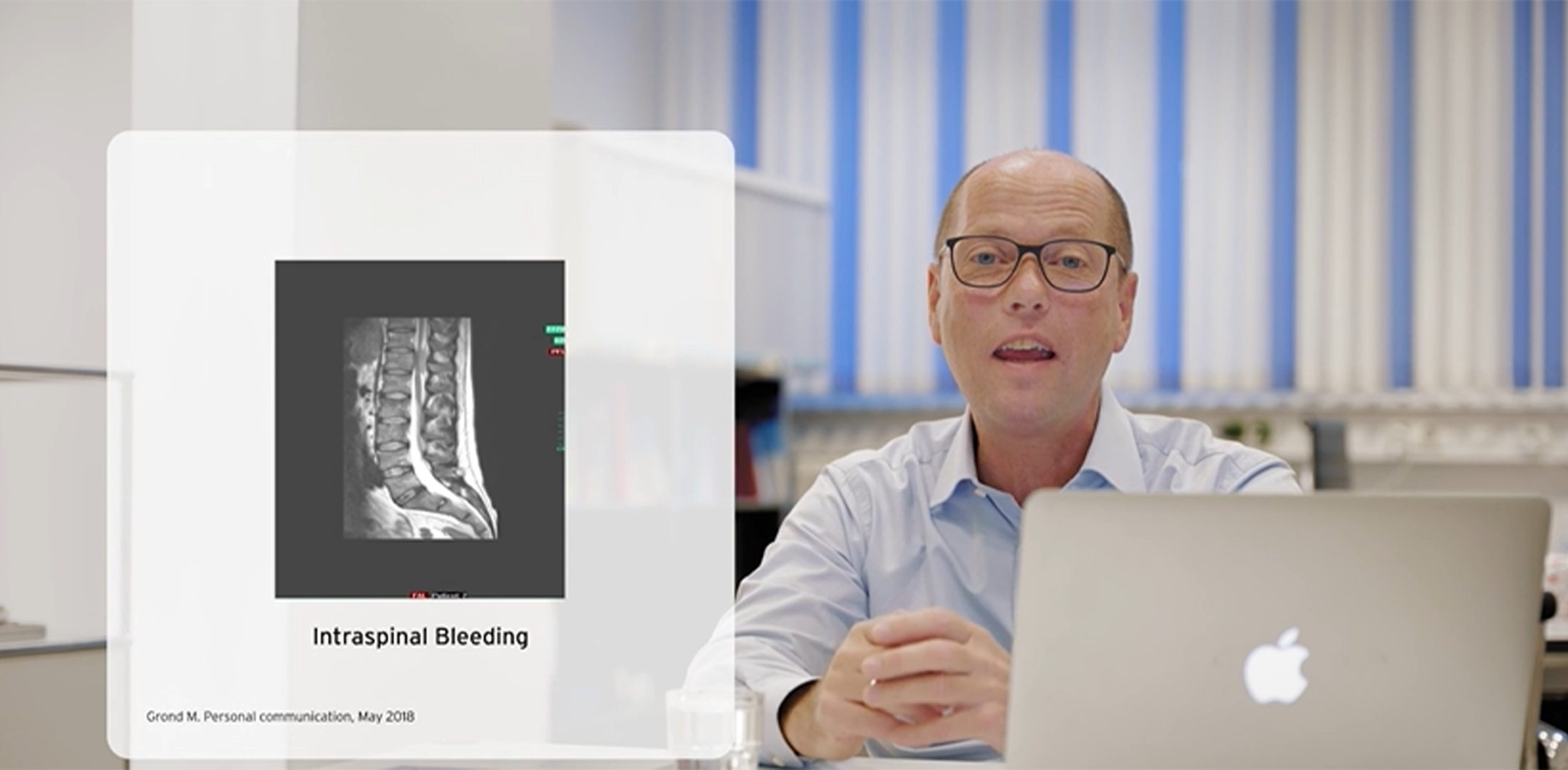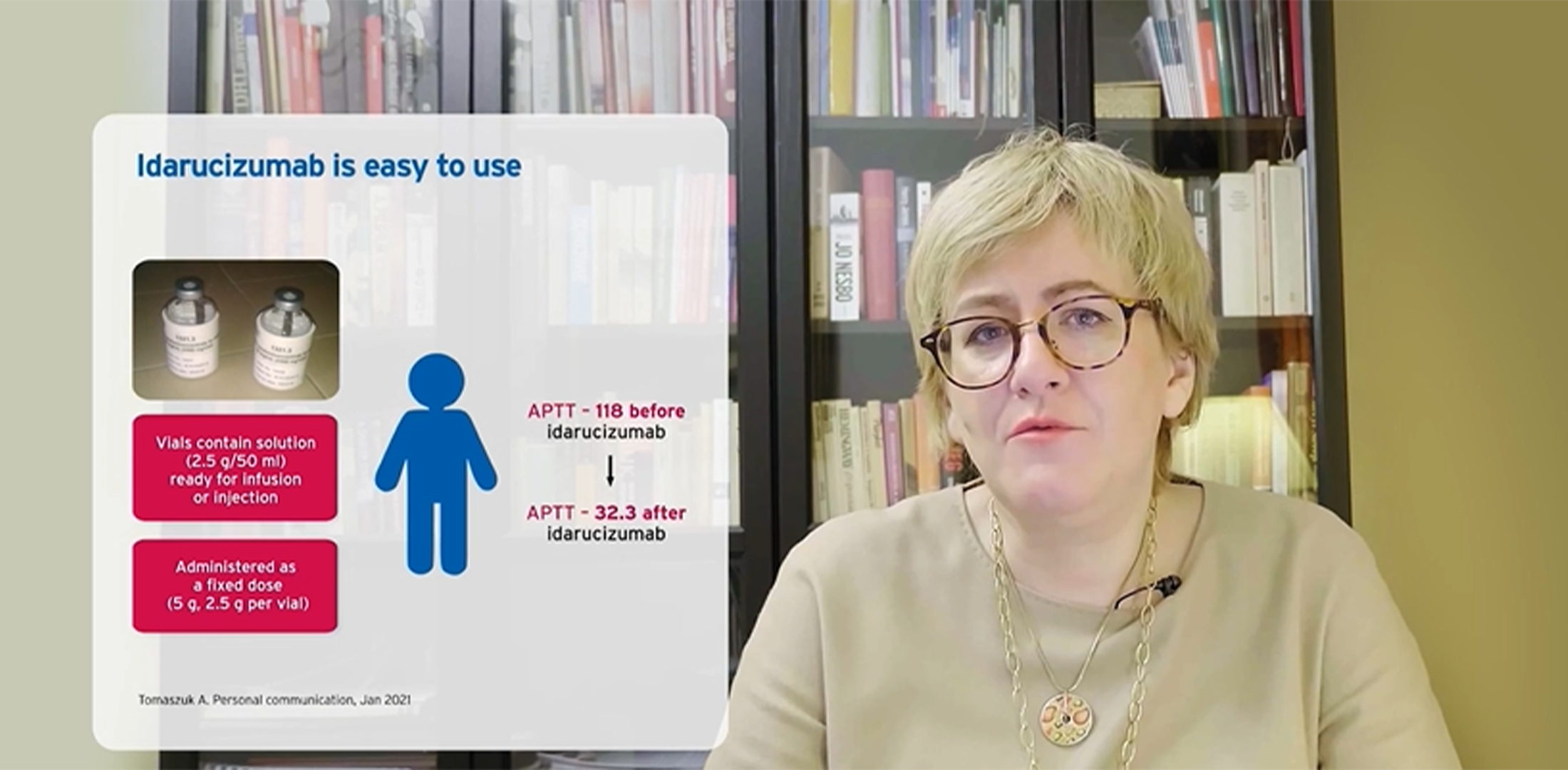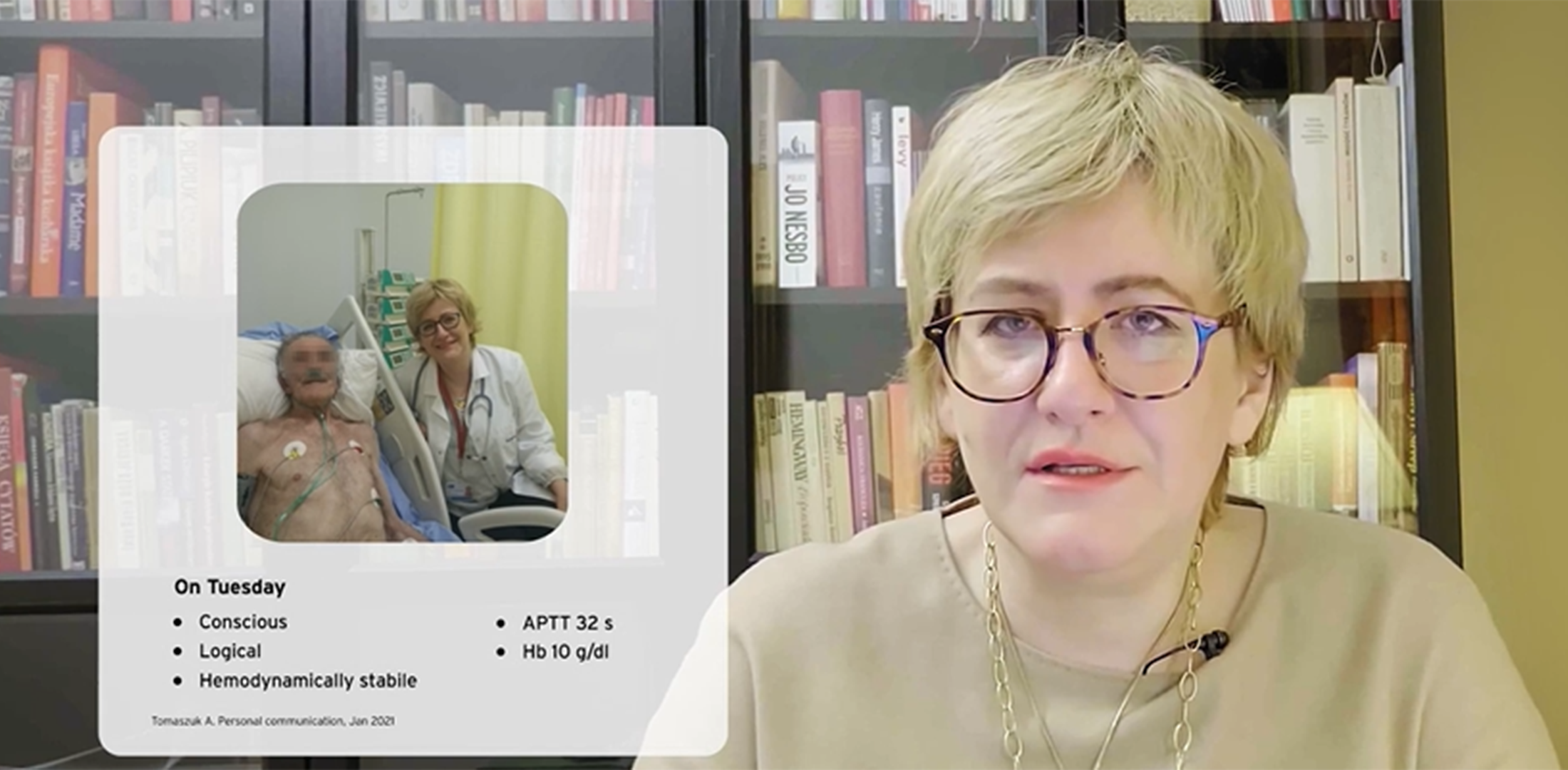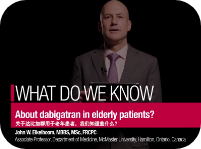- Home
- Dabigatran and the Role of Reversal Agent
Use of direct oral anticoagulants has bridged the need for effective anticoagulation in patients with atrial fibrillation. Professor Anna Tomaszuk-Kazberuk throws light on the efficacy and safety of direct oral anticoagulants and use of idarucizumab to reverse their anticoagulant effect, when needed.
Use of direct oral anticoagulants has bridged the need for effective anticoagulation in patients with atrial fibrillation. Professor Anna Tomaszuk-Kazberuk throws light on the efficacy and safety of direct oral anticoagulants and use of idarucizumab to reverse their anticoagulant effect, when needed.
Professor Anna Tomaszuk-Kazberuk discusses a case where cardiac surgeons initially refused to operate a patient on anticoagulant treatment and how idarucizumab has paved the way for proceeding with the contemplated procedure.
DOACs carry a risk of bleeding as with all antithrombotic therapies. A humanized monoclonal antibody was developed to reverse dabigatran anticoagulant effects in rare emergency situations. Let us see the mechanism of action of this antidote, idarucizumab.
Prof. Dr. med. Martin Grond provides a neurologist’s perspective on the reversibility of NOAC therapies and in specific about reversing dabigatran anticoagulant effects using idarucizumab in life threatening emergency situations like ischemic stroke and ICH, based on a retrospective study and real-world experience.
Prof. Dr. med. Martin Grond provides a neurologist’s perspective on the reversibility of NOAC therapies and in specific about reversing dabigatran anticoagulant effects using idarucizumab in life threatening emergency situations like ischemic stroke and ICH, based on a retrospective study and real-world experience.
Prof. Dr. med. Martin Grond provides a neurologist’s perspective on the reversibility of NOAC therapies and in specific about reversing dabigatran anticoagulant effects using idarucizumab in life threatening emergency situations like ischemic stroke and ICH, based on a retrospective study and real-world experience.
Prof. Dr. med. Martin Grond provides a neurologist’s perspective on the reversibility of NOAC therapies and in specific about reversing dabigatran anticoagulant effects using idarucizumab in life threatening emergency situations like ischemic stroke and ICH, based on a retrospective study and real-world experience.
Prof. Dr. med. Martin Grond provides a neurologist’s perspective on the reversibility of NOAC therapies and in specific about reversing dabigatran anticoagulant effects using idarucizumab in life threatening emergency situations like ischemic stroke and ICH, based on a retrospective study and real-world experience.
Prof. Dr. med. Martin Grond provides a neurologist’s perspective on the reversibility of NOAC therapies and in specific about reversing dabigatran anticoagulant effects using idarucizumab in life threatening emergency situations like ischemic stroke and ICH, based on a retrospective study and real-world experience.
Professor Anna Tomaszuk-Kazberuk elaborates on how the use of idarucizumab changed the opinion of cardiac surgeons from withholding an emergency procedure for an imminent life-threatening condition to performing the same, while the patient was on dabigatran.
An elderly lady who had previous stroke and maintained on dabigatran had massive bleeding from her genital tract, as seen by her gynecologist. Professor Anna Tomaszuk-Kazberuk tells us how idarucizumab served as her rescue drug.
There are circumstances that may need for emergency reversal of anticoagulation in order to save lives of patients. Professor Anna Tomaszuk-Kazberuk deliberates on the use of idarucizumab by citing different clinical scenarios which were successfully managed with administration of idarucizumab based on her clinical experience.




